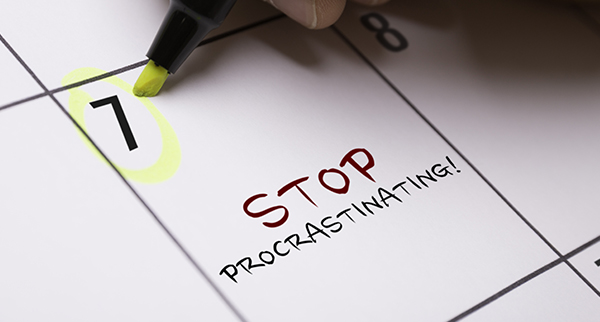Procrastination is an act of delaying or postponing something. It is one of the worst habits to have and super difficult to overcome. Procrastination will almost guarantee diminishing returns and inefficient work output, both bad for professional growth. You will find yourself rushing at the last minute to meet the deadline and cursing yourself why you didn’t start earlier.
A lot of people confuse procrastination with laziness, but both are separate concepts. Laziness is inactivity or unwillingness to act, whereas procrastination is doing something else when you have other important tasks at hand. Often people give in to this impulse, which leads to demotivation and starts affecting the quality of work.
It’s pretty clear that procrastination is wrong, but how do you prevent yourself from doing it?
Notice that you are procrastinating –
A lot of the time, people put off an important task by giving themselves an excuse. Doing it for a short period with a genuine reason is fine, but if you find yourself putting things off indefinitely, then it’s a sure shot sign of procrastination. Here are a few other characters that you might be procrastinating:
- Start a high priority task and soon start scrolling through social media endlessly
- Filling your time with trivial tasks to avoid what you already have at hand
- Waiting to be in the right mood to start the task
Strategize
Procrastination is a habit that’s hard to drop. Hence it will take quite some time to get over it. But with time and effort, you can stop procrastinating. Here are few excellent strategies that you can adopt to bring about change:
- Commit to the task: Instead of avoiding a task due to its tedious or complex nature, commit to doing it. Make yourself a timetable and provide yourself with a reasonable deadline and stick to it.
- Reward yourself: Every time you commit to something and finish it without procrastinating, reward yourself with a treat or an episode of your favourite show.
- Ask friends or family to keep a check on you: We often commit more to stuff when there’s someone to keep a check on you, don’t be ashamed about this; this is human nature. Peer pressure can be beneficial if used towards essential things.
- Minimize distractions: I have said this many times in other blogs and will repeat it- we live in an era of technology, and it’s just so easy to start drifting towards distractions. Ranging from one more funny meme to one more episode of your favourite show, one can waste hours before they even realize it. To avoid this, you need to keep technology as far away as you can while you’re working on something important.
- Take up the most important task first thing in the morning: People generally say that you need to kickstart your day on a pleasant note, but it’s not entirely true. Even if you have an unwanted task that is a top priority, you need to take that up first thing as you start.
Doing these few simple things will take you and your career a long way.
By Vrutika Dawda, Director, IdeateLabs


